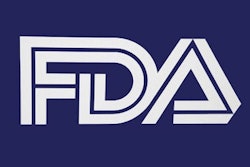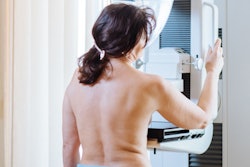Dear AuntMinnie Member,
It seems like a no-brainer -- using radiation shielding devices like lead aprons can help protect patients from unnecessary radiation dose during x-ray exams.
But experts are starting to rethink that approach. Many are recommending that imaging facilities ditch lead aprons for patients for routine x-ray studies. Our article about how a health system operated by the University of Iowa did just that was our top story for the past week.
Why did they do it? Radiation dose from conventional radiography exams has dropped to the point where it's comparable to that experienced on a transatlantic flight. And previous studies have found that shielding could potentially interfere with image quality, thus requiring retakes -- and additional radiation dose. Learn more in an article in our Digital X-Ray Community.
While you're in the community, check out these recent stories:
- Find out about a two-for-one approach that used dual-energy x-ray absorptiometry (DEXA) exams to identify women who might be at risk for dementia.
- Learn how interruptions in the reading room can kill productivity of radiologists.
- Discover how a chest x-ray technique that uses higher kilovoltage settings can sharply reduce radiation dose for imaging studies of infants.
CMS rethinks PET payment limits
In other news, the U.S. Centers for Medicare and Medicaid Services (CMS) is having second thoughts about its decision to limit reimbursement for PET scans of patients with Alzheimer's disease who are being treated with monoclonal antibody treatments like Aduhelm.
CMS generated controversy in April when it said it would only pay for one scan to monitor changes in beta-amyloid levels following treatment, and only for people enrolled in clinical studies. PET proponents noted that PET is the only test approved by the U.S. Food and Drug Administration for detecting beta amyloid in the brain, a known marker for Alzheimer's disease. They are hoping that CMS will loosen its position.
Check out our Molecular Imaging Community for more on this developing story.
Contrast mammo vs. breast MRI
Meanwhile, be sure to visit our Women's Imaging Community for an article on a research study that compared contrast mammography to breast MRI to assess response to treatment for breast cancer.
You'll also find news about a study that suggests that clinical breast exam is not needed to follow up patients treated for early-stage breast cancer (other tools are better), and a study on how barriers to breast screening for transgender people need to be brought down.
Finally, did you attend our webinar earlier this week on the job market for radiologists? Don't worry if you didn't, as we've made it available for on-demand viewing.



















